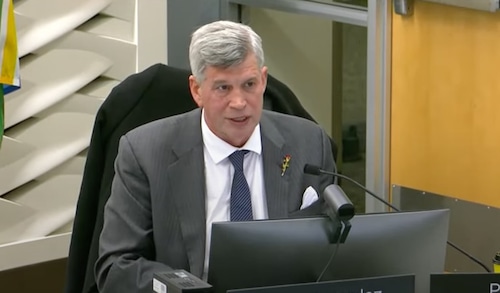Changes to the municipal code that require more stringent life and safety improvements for short-term rental units situated in commercially zoned zones across the city were passed by the Portland municipal Council on Wednesday.
The vote is part of a larger initiative by Portland to strengthen its enforcement of current short-term rental laws, remove prohibited listings from websites such as Airbnb, and take tough measures against scofflaw operators who are breaking city ordinances.
Single-family homes and duplexes close to busy commercial avenues that investors have been snatching up and turning into short-term rentals without a permanent occupant are included by the code modification that was authorized on Wednesday.
In the past, the city has mandated that the owners apply for a change in occupancy permit and, similar to hotels, install costly safety improvements including egress windows, sprinkler systems, and fire wall separations.
Because the regulations are not mandated by the state construction code and do not apply to comparable facilities in residential neighborhoods, that has been controversial among operators. Furthermore, when council members were originally considering the guidelines last week, one investor in such conversions informed them that no other municipality in the nation had enacted comparable standards.
Although the restrictions have supposedly been in effect in Portland for a while, they haven’t been followed consistently and have occasionally been successfully challenged. Last week, staffers told commissioners that a 2023 change in state building codes means the city can no longer rely on them to assert the upgrade requirements, necessitating the local ordinance.
Commissioners were informed by Donnie Oliveira, the administrator of Portland’s revenue and permitting departments under the city’s new form of government, that a gap had been created by the change in state codes. “The only way to close that loophole and ensure that our safety standards are maintained is to pass this ordinance,” he said.
The council postponed a decision to gather further details on the costs and the application of the rules following a protracted discussion last week. On Wednesday, the staff went over the expenses and responded to a number of inquiries regarding how the upgrades differ from those needed in hotels. Commissioner Rene Gonzalez’s proposal, which required staff to submit a report within six months regarding the application of system development costs to hotels and short-term rentals in commercial districts, was adopted.
He stated that we are not discriminating against anyone and that he wanted to determine what was fair.
The council adopted the code modification mandating the safety enhancements with little further discussion.
Meanwhile, city staffers say they are stepping up enforcement in a variety of ways and are considering further code changes if they can t reach an agreement with Airbnb to easily exchange information about listings a problem that has plagued regulators for the last decade.
In October, the city started enforcing new rules that prohibit short-term rental hosts from advertising rentals on Airbnb and other platforms with more bedrooms or guests than their permit allows. The advertising rules were adopted because enforcing existing prohibitions on hosts actually renting more bedrooms or to more guests than permitted required lengthy investigations to prove.
Oliveira said in an interview last week that the city has issued 55 citations totaling $240,000 since October. Those cover a variety of violations but include multiple citations under the new advertising rules. Those violations can be identified by simply comparing a listing advertised on Airbnb with the city s permitting database and issuing a citation if the listing is out of compliance with the permit.
Due in part to a lack of information that would enable investigators to quickly compare the city’s database of permitted rentals to Airbnb listings and their physical addresses, the understaffed Portland Permitting & Development bureau has had difficulty enforcing short-term rental laws for the past ten years. Airbnb won t provide the data in bulk, arguing that s proprietary customer information protected by various court precedents.
Oliveira said the city is in ongoing discussions with Airbnb to facilitate that data exchange for individual listings in a way that makes enforcement less time consuming.
None of us can continue to throw staff at the problem at the scale needed, so we have to have a technology solution, Oliveira said. Either Airbnb works with us to actively enforce the codes on the books, or we ll change our code to make it happen. I think Airbnb understands that.
To that end, staff at the Bureau of Planning and Sustainability have been tasked with undertaking a best-practices review of other cities to determine what s working and whether Portland could adopt similar approaches. That will be delivered to the new council sometime next year, he said.
We hope that Airbnb is sincere in their offer to work with us, Oliveira said. I m going to take that at face value, and if it doesn t work we ll look at code options.
That s not an ultimatum, he added. It s situational awareness.
-Ted Sickingeris a reporter on the investigations team. Reach him at 503-221-8505,tsickinger@oregonian.comor@tedsickinger
-Our journalism needs your support. Please become a subscriber today atOregonLive.com/subscribe
Note: Every piece of content is rigorously reviewed by our team of experienced writers and editors to ensure its accuracy. Our writers use credible sources and adhere to strict fact-checking protocols to verify all claims and data before publication. If an error is identified, we promptly correct it and strive for transparency in all updates, feel free to reach out to us via email. We appreciate your trust and support!







